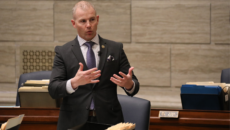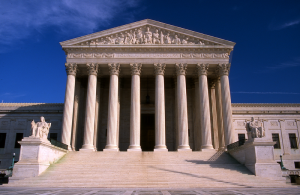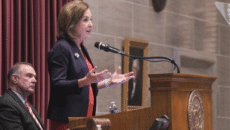JEFFERSON CITY, Mo. – Missouri judges are hitting the road as part of a statewide initiative – dubbed “Have Gavel, Will Travel” – aimed at boosting the public’s understanding of the judicial system. Of the three branches of government, the judicial branch is the least understood by most Americans, studies show.
“Civic literacy is the backbone of democracy and essential to maintaining the health of our republic,” said Judge Ted House, a circuit judge in the 11th Judicial Circuit (St. Charles County) and chair of the Supreme Court of Missouri’s civic education committee. “The courts have a unique opportunity and a responsibility to ensure all our citizens – including young folks – are engaged and knowledgeable about the way our government functions.”
The level of civic education among the public remains at an all-time low, research shows. A recent survey by the Annenburg Public Policy Center at the University of Pennsylvania of adults found: 68 percent could not name all three branches of government, while 33 percent could not name any of the three branches; and only 30 percent know the United States Senate confirms a nominee to the Supreme Court of the United States.
“Judges are eager to go into communities throughout the state and discuss how our courts function and why,” Judge House said. “While judges cannot offer legal advice or weigh in on pending cases, they can provide a wealth of information about how our judicial system works and why it is the best in the world. We also need to be educating the next generations of informed, engaged citizens – and future lawyers and judges.”
The “Have Gavel, Will Travel” program will operate year-round. Judges’ presentations are free, interactive and can be adapted to suit any audience. Traveling judges are available to visit elementary and secondary schools, colleges and universities, libraries, community and professional organizations, service clubs, senior citizen centers and residential facilities, neighborhood groups, and faith communities. Some judges are planning to hold live court proceedings in schools and community centers so members of the public can see first-hand what actually goes on inside a courtroom.








